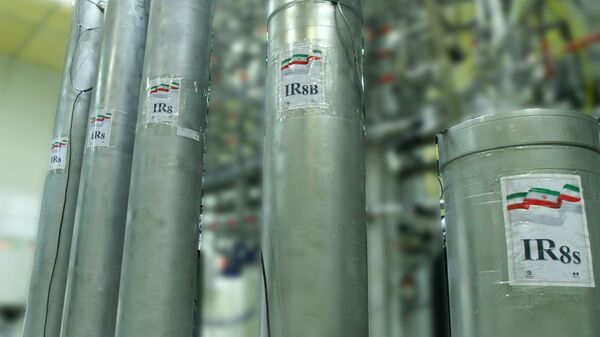"The purpose of steps to reduce JCPOA obligations is to change the behavior of the other party, and the reason for taking these steps is to protest the other party’s failure to fulfill its obligations ... it has had no effect on the other party so far as it has fulfilled no commitment", Hossein Naqavi Hosseini told Tasnim news agency.
On Wednesday, French Foreign Minister Jean-Yves Le Drian warned that the mechanism re-enacting sanctions against Iran might be launched due to Tehran's non-compliance with obligations under the nuclear deal.
Earlier in November, the fourth stage of reducing the JCPOA obligations was implemented, as part of which Iran started enriching uranium at the Fordow Fuel Enrichment Plant.
In May, a year after the US unilateral withdrawal from the nuclear deal, Tehran announced it would gradually abandon its JCPOA obligations every 60 days unless the other signatories helped ensure Iran's interests.
In May 2018, Washington withdrew from the nuclear deal, signed in 2015 by Iran, China, France, Germany, Russia, the United Kingdom, the United States, and the European Union. It has since then been imposing sanctions on the Middle Eastern country, aimed at bringing its oil exports to zero among other restrictions.

The nuclear deal provides for the possibility of activating a special dispute resolution mechanism if one of the parties considers that the other does not comply with its obligations. If it is not possible to agree within the framework of the mechanism, the document provides for the right of the parties to stop fulfilling their own obligations, as well as the possibility of restoring sanctions against Iran.


